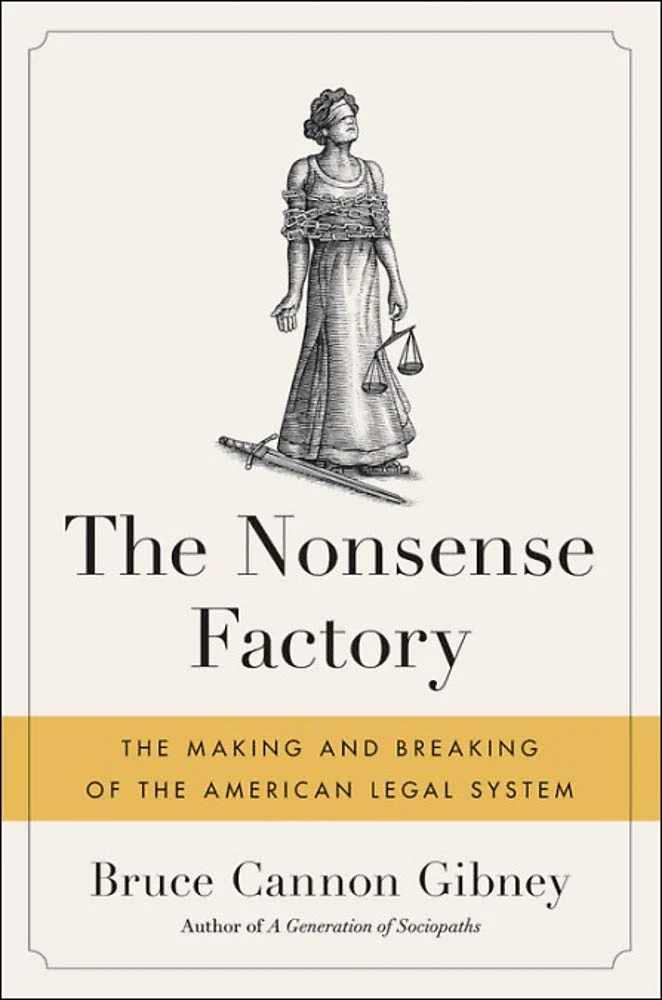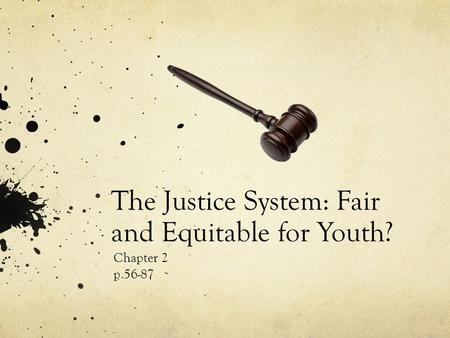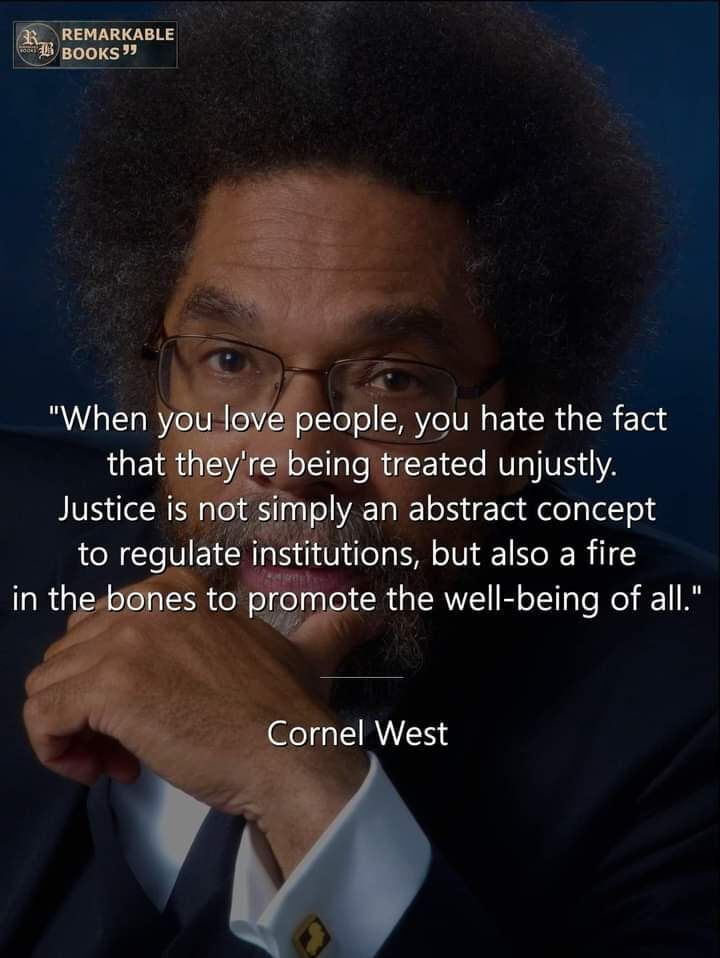
Bruce Cannon Gibney discusses his new book about how our legal system has deteriorated since the 1950s as laws have become needlessly complex, clouded by politics and influenced by money.
Novelist Raymond Chandler once said,
“The law isn’t justice.
It’s a very imperfect mechanism.
If you press exactly the right buttons and are also lucky, justice may show up in the answer.”
Page Description
Discover the flaws in the legal system and how justice can often be elusive, highlighting the complexities and imperfections of the law.

Is our system of justice in the United States broken?
1944.
A 14 year old boy by the name of George Stinney, just over 5 feet tall and 90 pounds was convicted for the murder of two white girls.
The evidence used against the black boy Stinney was that on that fateful day in South Carolina, the two girls who were murdered happened to pass by Stinney’s home looking for flowers on the segregated side of the train tracks.[1]
These girls were cruelly murdered, use of blunt force trauma fractured their skulls and were left to die.
Stinney, while having an alibi as he was with his sister, was 90 pounds heavy. So tell me, how was this boy convicted of beating these girls to death and dragging them into a ditch?
Stinney was innocent, but you know what Stinney also was? Black.
Stinney was interrogated by white police officers and not allowed to talk to his family or attorney. Stinney was psychologically tortured to confess to a crime he didn’t commit by being starved and manipulated by police officers.
.He was confined for 81 days. Alone.
A new book by Bruce Cannon Gibney, a litigator turned venture capitalist, gives credence to that idea. The Nonsense Factory: The Making and Breaking of the American Legal System looks at how jurisprudence has decayed over the last 70 years as laws have become needlessly complex, clouded by politics and influenced by money. Gibney, an early investor in PayPal and other tech companies, also wrote a book critical of baby boomers, A Generation of Sociopaths. He spoke on the Knowledge at Wharton radio show on SiriusXM about the dysfunction in the American legal system and how it hurts businesses, consumers and the “average Joe.”
Een nieuw boek van Bruce Cannon Gibney, een advocaat die durfkapitalist is geworden, geeft geloof aan dat idee. The Nonsense Factory: The Making and Breaking of the American Legal System onderzoekt hoe de jurisprudentie de afgelopen 70 jaar is achteruitgegaan, aangezien wetten onnodig complex zijn geworden, vertroebeld door politiek en beïnvloed door geld. Gibney, een vroege investeerder in PayPal en andere technologiebedrijven, schreef ook een boek dat kritisch is over de babyboomgeneratie, A Generation of Sociopaths. Hij sprak op de Knowledge at Wharton-radioshow op SiriusXM over de disfunctie in het Amerikaanse rechtssysteem en hoe dit schadelijk is voor bedrijven, consumenten en de “doorsnee Amerikaan.”
What is wrong with the US justice system?
Imagine a photographer who isn’t that keen on taking photos, but instead loves to develop them. He really enjoys spending time alone in the dark room. He craves the smell of the chemicals and the hands-on nature of the equipment.
This photographer is interested in the process of developing pictures. The more attached he becomes to this process, the less he cares about the photographs themselves. At some point, he’s so enraptured with his enlargers and emulsifiers that the film he develops wouldn’t even need to be exposed at all, or perhaps could’ve been pulled from it’s roll in the full bright of daylight. He wouldn’t care. He’s still going to get to spend time in the solitude of his room with his red light, bottles, and arcane machinery.
This is our legal system. It doesn’t care about the individuals that go through the process, it’s enraptured with the process itself. To study law isn’t to study what is fair. It’s to study how it’s always been done, who can say what, do what, talk to whom, and when.
Under this system, guilt or innocence is irrelevant. The machinery must keep moving and the results just don’t matter. It can be obvious to every single person in the system that someone is innocent… but we’ve still got to push him through the grinder to see what the hamburger smells like on the other side.
Dit is ons rechtssysteem. Het geeft niet om de individuen die door het proces gaan, het is betoverd door het proces zelf. Rechten studeren betekent niet bestuderen wat eerlijk is. Het betekent bestuderen hoe het altijd is gedaan, wie wat kan zeggen, wat kan doen, met wie kan praten en wanneer.
In dit systeem is schuld of onschuld irrelevant. De machine moet blijven draaien en de resultaten doen er gewoon niet toe. Het kan voor iedereen in het systeem overduidelijk zijn dat iemand onschuldig is… maar we moeten hem toch door de molen duwen om te zien hoe de hamburger aan de andere kant ruikt.
This description underscores the systemic indifference embedded within the legal process. The focus is on procedural adherence rather than achieving true justice. The system is, in one word, “uncaring.” It operates in a way that often disregards the human element, prioritizing its own perpetuation over the fair and just treatment of individuals.
Harvard Professor Michael Sandel emphasizes in “Justice: What’s the Right Thing to Do?” that the practice of justice must be guided by a moral compass. It must seek the truth and ensure fairness, free from bias and confirmation bias. This is the paradox: a system designed to deliver justice that frequently fails to do so, demonstrating an unsettling disconnection between its purpose and its practice. To align with its true purpose, the justice system must prioritize finding the truth and doing what is morally right, ensuring that justice is not just a process, but a reality for all individuals.
The description highlights a broken justice system, underscoring the systemic indifference embedded within the legal process. The focus is on procedural adherence rather than achieving true justice. The system is, in one word, “uncaring.” It operates in a way that often disregards the human element, prioritizing its own perpetuation over the fair and just treatment of individuals.
The case of George Stinney in 1944 exemplifies a deeply flawed justice system. At just 14 years old, Stinney, a black boy weighing only 90 pounds, was wrongfully convicted of murdering two white girls. Despite having an alibi and being physically incapable of committing the crime, he was coerced into a confession through psychological torture, starvation, and isolation by white police officers. He was denied access to his family and an attorney, ultimately leading to his conviction and execution.
This tragic case highlights a fundamental failure in the pursuit of justice.

Post Office Horizon Inquiry Paula Vennells & Jason Beer PART 4
28 mei 2024
71 minutes cut to 58 minutes, I never rearrange or edit out of context, annoyingly this time as I never go backwards I forgot to change the first caption from XX to 58 OOPS!
00:00 Intro & thank you for keeping interested in the inquiry the SPMs waited a long time for this to happen
00:27 Mr Beer wastes no time and is back to the point
07:16 The Wrath of Tim McCormack part 1 uff!
14:29 The hub that was meant to collate Horizon problems and Branch Support
20:52 When MP’s write in, this is how POL and Vennells do things
30:03 The Wrath of Tim McCormack part 2 What Kind Of God Do You Worship
37:57 Paula Vennells & Remote Access from 2008
56:10 Exculpatory evidence
By the way I have cut 39 minutes out.
Mr Bates vs The Post Office – Full Select Committee Hearing 2015
9 jan 2024
Since there is so much renewed interest, here is the entire Business, Innovation and Skills Select Committee Hearing on the Post Office Horizon scandal on February 3, 2015 in which Alan Bates participated and Paula Vennells was questioned.
The Vennells section of the committee starts at 1:03:30.
Participants
First part:
° Andy Furey, Assistant General Secretary, CWU
° Mark Baker, National Branch Secretary, Postmasters Branch, CWU
° George Thomson, General Secretary, National Federation of SubPostmasters
° Alan Bates, Chairman, Justice for Subpostmasters Alliance
° Kay Linnell, Chartered Accountant, Kay Linnell & Co
Second part:
° Paula Vennells, Chief Executive, Post Office
° Angela van den Bogerd, Head of Partnerships, Post Office
° Ian Henderson, forensic computing expert, Advanced Forensics (Second Sight Ltd)
© UK Parliament 2015
“She’s A HYPOCRITE!” – Post Office Boss Paula Vennells In Tears Over Scandal Inquiry
23 mei 2024
The son of wrongly-convicted subpostmaster Varchas Patel has called Paula Vennells a “hypocrite”, as the ex-Post Office boss faces her second day of questioning.
“The Post Office and Government spent nearly £100m trying to ruin Alan Bates and the group!”
Former Post Office boss Paula Vennells has broken her almost decade-long silence on the Horizon scandal as she was quizzed on how things unfolded on her watch.
During her evidence to the Post Office Horizon IT Inquiry, Ms Vennells cut an emotional figure as she broke down twice under questioning from counsel to the inquiry Jason Beer KC.
Post Office Scandal: Government Has “Much More To Do” For Victims Says Tory MP
10 jan 2024
Tory MP Paul Scully says there is “so much more to do” for the Government to “put Post Office scandal victims right financially”.
It comes after the former Post Office boss Paula Vennells is set to hand back her CBE following the fallout of the Horizon IT scandal which led to the wrongful prosecution of hundreds of sub-postmasters.
The former chief executive, who ran Post Office while it routinely denied there was a problem with its Horizon IT system, was appointed a CBE in December 2018.
In a statement, Ms Vennells said: “I am truly sorry for the devastation caused to the sub-postmasters and their families, whose lives were torn apart by being wrongly accused and wrongly prosecuted as a result of the Horizon system.”
Paul says: “We had a statement from Kevin Hollinrake last month and it was a near empty chamber, because of the drama yesterday it was nearly full.”
Man With Women’s Shoe Fetish
8 mei 2011
A well-dressed businessman is shopping for woman high heels at the shoe store. No one wants to help him decide between the red and the black pumps!
JFL British Edition is a presentation of JustForLaughsTV, the official Just For Laughs Gags YouTube channel. Home of the funniest, greatest, most amazing, most hilarious, win filled, comedy galore, hidden camera pranks in the world!